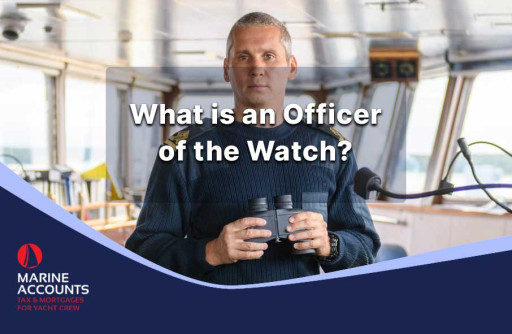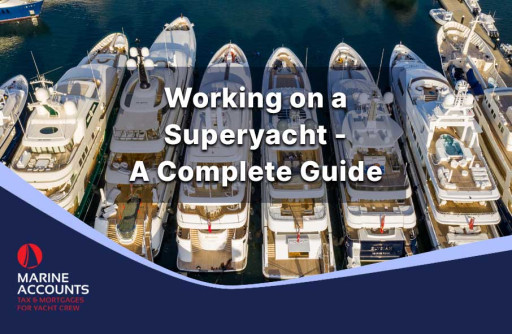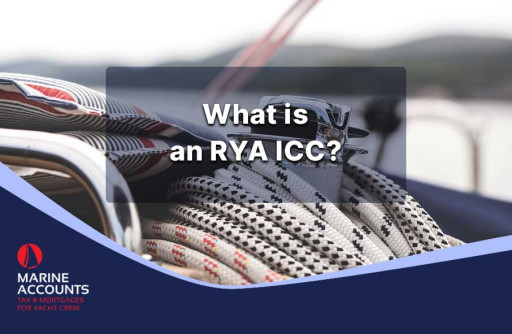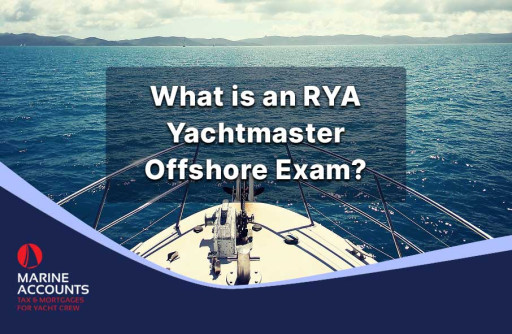How to Get a Marine VHF Radio Licence
- Authors
-
-

- Name
- Patrick Maflin
-
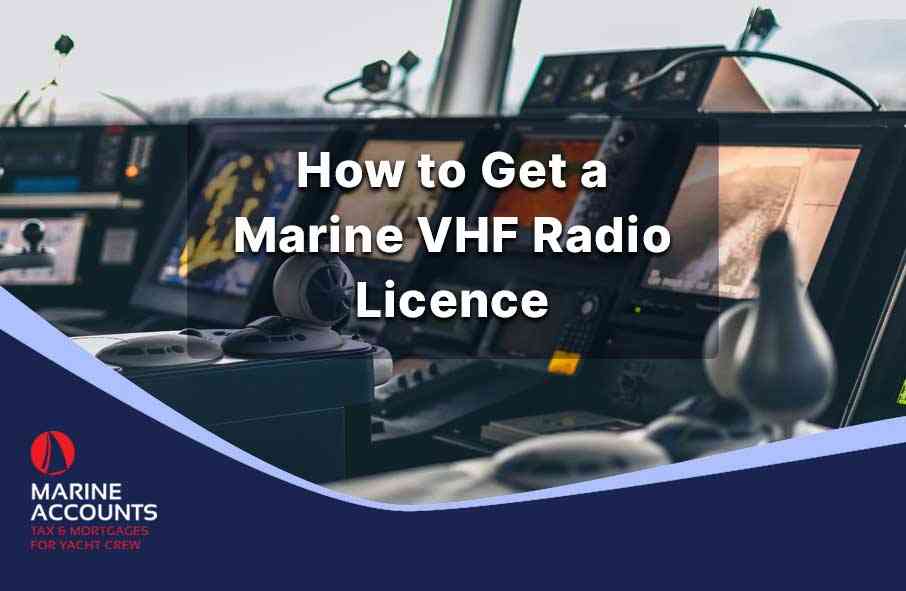
A marine VHF radio is an important safety tool when out at sea.
For example, yacht captains can keep in touch with marinas, the coastguard and other boats in the near vicinity.
However, those who make use of a marine VHF radio need to have a suitable licence.
This licence is a must for sailors, kayakers, paddle boarders and anyone driving a powerboat.
Chapters
- What is a Marine VHF Radio Licence?
- Why Do I Need a Marine VHF Radio Licence?
- Types of Radio Licences
- How to Apply for a Marine VHF Radio Licence
- Can I Take a Marine Short Range Certificate (SRC) Course & Exam?
- What Does the Short Range Certificate (SRC) Exam Test For?
- Do Yacht Crew Need to Know How to Use a Marine VHF Radio?
- Frequently Asked Questions
- How Do I Get Into Yachting?
- Conclusion
What is a Marine VHF Radio Licence?
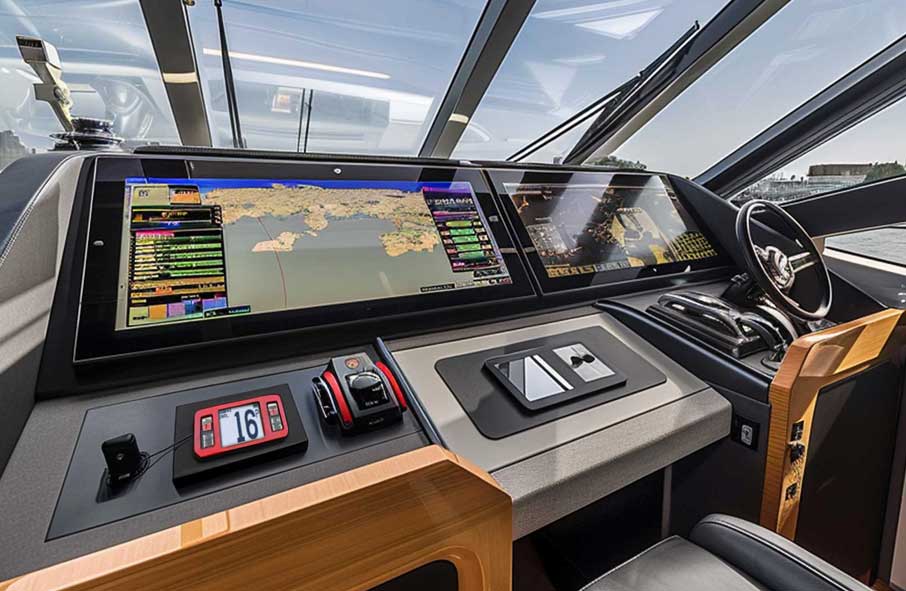 Typical bridge aboard a yacht
Typical bridge aboard a yacht
Radios aboard ships use MF, VHF, HF and UHF frequency equipment.
Depending on the type of radio the vessel is equipped with and how it is used, you may need both a radio licence as well as an operator’s licence.
This is required by law if one is going to make use of such equipment onboard a sea vessel such as a superyacht.
The ship radio licence should be kept on board as inspections may be carried out.
Should a valid licence not be produced on demand, the equipment could be confiscated and legal action will be taken.
The vessel may also be seized, so it’s crucially important that anyone operating a ship with radio equipment has all necessary licences in place.
Why Do I Need a Marine VHF Radio Licence?
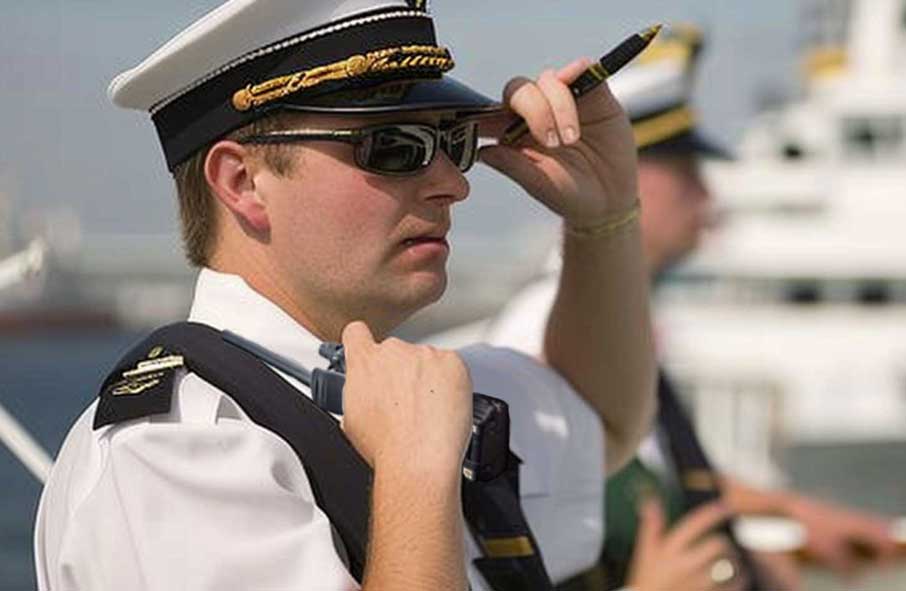 Yacht Captains rely on VHF radio
Yacht Captains rely on VHF radio
Such a radio licence ensures that the radio equipment used onboard sea vessels will not cause any undue interference to other communications equipment.
It’s also a way of ensuring the radio equipment is operated by competent persons only.
It’s important to point out that if one makes use of a marine VHF radio without having such a licence, this constitutes a criminal offence.
OFCOM’s enforcement team may impose fines on the spot, and the maximum penalty fine on conviction set at £5,000 with the possibility of a 6 month custodial prison sentence!
Anyone convicted will also be ordered to forfeit their radio equipment.
Types of Radio Licences
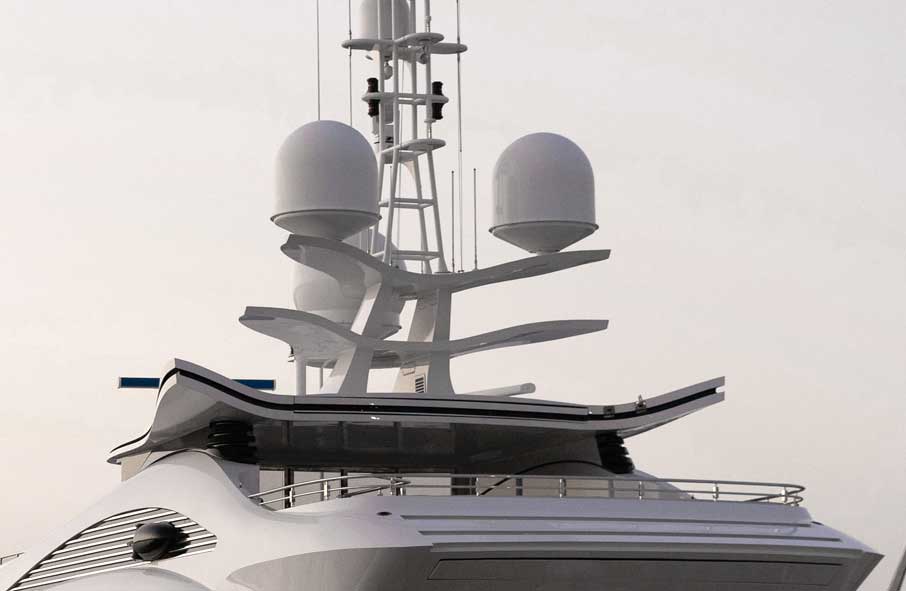 Superyacht VHF radio antenna
Superyacht VHF radio antenna
Ship's (VHF) Licence
In most cases this is the most common Licence that is required.
This licence authorises the use of two-way communications with other sea vessels, shore stations and marinas, as well as aircraft, by making use of specific frequencies within the International Maritime Band.
Portable Radio Licence
In case of handheld VHF/DSC radios this special licence is required.
A ship portable radio licence allows the operator to use any handheld VHF/DSC radio.
The licence number will have the prefix ‘T’, which delineates that it is transportable.
This will also be subjected to checking that the registered details are correct every 10 years.
Sometimes, a no ship call sign can be allocated to portable VHF.
In such cases operators would need to identify themselves either by name or by the type of vessel that they are on.
This licence does not extend outside the UK territorial waters.
Operator's Licence
Apart from the ship’s radio licence, you would also need an operator’s licence.
There are various certificates of competence available.
These depend on the type of equipment that is installed and its application.
Such courses can be taken at MCA or RYA training centres.
Short Range Certificate (SRC)
This is the licence that is required to be able to operate VHF equipment.
The SRC is needed for all VHF DSC equipment on both commercial as well as pleasure craft.
In order to obtain the SRC, one would need to sit for an exam, and in addition, sign a confidentiality agreement with the application.
This is then sent to the RYA, which will then issue the certificate.
Should you have an old restricted licence on non-DSC equipment, you would need to reapply to take the SRC at an RYA training centre to be allowed to use the DSC radio equipment.
However you would not need to sit for the exam and the old certification may still be used to operate a non-DSC radio.
Long Range Certificate (LRC)
The LRC is required to operate MF/HF/VHF equipment on any sea vessel which may be required to fit Global Maritime Distress and Safety System equipment which is beyond sea area A1.
This is typically around 30 to 40 nautical miles from a coastal radio station.
How to Apply for a Marine VHF Radio Licence
Upon installing the radio in the vessel you will need a ship’s radio licence.
This can be issued free of charge for the lifetime of the vessel, and you may obtain it through the Office of Communications website (OFCOM).
The details will be checked every 10 years to make sure that they are correct.
In case the boat is sold, the new owner’s details will need to be transferred to the MMSI number.
A transfer would also need to be made in case the radio is sold.
Prior to this arrangement, one had to return the radio to the manufacturer in order to remove its MMSI number, and the new boat owner would have had to go through the application in order to apply for a new one.
When an MMSI is registered with OFCOM, both the ITU and the MCA will be informed so that the MMSI number will appear in the Maritime Access and Retrieval System.
The vessel’s name and country will also be inputted.
Can I Take a Marine Short Range Certificate (SRC) Course & Exam?
Yes, one may follow a marine radio SRC course in order to sit for the exam.
Such a course is ideal for anyone who owns either a fixed or handheld marine VHF radio.
The short range certificate is the most basic qualification that is required by law when using such equipment.
These courses are organised by the RYA and they comprise 10 hours plus the examination time.
The courses are held both in person and online.
However the exam is always carried out in a classroom.
One needs to be at least 16 years of age to enrol for such a course and sit for the exam.
During the course, the basics of radio operation will be tackled, along with key areas such as frequencies, making ship to shore calls, dealing with distress and emergency situations and relevant procedures in such cases.
Digital Selective Calling and the Global Maritime Distress Safety System will also be tackled.
What Does the Short Range Certificate (SRC) Exam Test For?
The SRC exam is a written theory exam.
It assesses candidates to ensure that they are knowledgeable on how to make proper use of marine VHF radios.
Do Yacht Crew Need to Know How to Use a Marine VHF Radio?
If you wish to embark on a career at sea and plan to get into yachting, having a variety of skills at your disposal is crucial to the safety and wellbeing on board.
However, it is very unusual for deck crew such as deckhands, bosuns, chief stewards, stewards or chefs to ever be involved in the ship’s operation or navigation.
Use of the vessel's Marine VHF radio is strictly for the Captain, as well as the 1st and 2nd officers inside the bridge, thus enabling the rest of the crew to carry out their day-to-day duties.
Only in very rare circumstances will another member of the crew have to use the ship’s main VHF radio.
Frequently Asked Questions
How Do I Get an MMSI Number?
MMSI stands for Maritime Mobile Service Identity number. This is issued to all new ship radio licences, including those issued for portable radios. Should you already have a ship radio or ship portable radio licence, you would need to amend it accordingly. Once it has been amended, an MMSI will be generated. This will be displayed on the licence document too. Applying for this number is done through the OFCOM website.
Can I Transfer a Licence from Vessel to Vessel?
No, you cannot transfer a licence to your name because these licences are non-transferable. This is due to the fact that a call sign and an MMSI number remains with the particular vessel for life. Hence, in such cases one would need to apply for a new licence by providing the new owner’s name, and retain the call sign and MMSI number of that vessel.
How Long is a Licence Valid For?
These licences are valid for the lifetime of the vessel. In case the vessel is sold, you would have to surrender the licence.
What Happens If I Sell My Vessel?
If the vessel is sold, the owner needs to surrender the licence. This can be done by logging into the online licensing service page on OFCOM’s website where one can manage his licences.
How Do I Get Into Yachting?
Working aboard a superyacht is a very attractive career choice, especially for the adventurous types who love the outdoors.
With that in mind, it is also a very demanding and challenging career.
Days are long, and free time to spend for yourself is very limited.
But if you have the right mindset and a positive attitude to earning a potentially tax free income, it can be a great way to get ahead and put away a nice little nest egg for the future.
If you’re thinking about a career as part of a yacht crew, check out the various articles available in our blog, or speak to one of our team who can offer free advice and guidance on a career in yachting and how best to prepare your tax affairs to maximise your take home salary.
Conclusion
Ship radio is imperative for the safe navigation of vessels.
Apart from enabling communication with other vessels, coast stations and port authorities, it is used in emergency situations such as to make distress calls.
Therefore it is important to ensure that one has the proper licence.
Disclaimer: Any advice in this publication is not intended or written by Marine Accounts to be used by a client or entity for the purpose of (i) avoiding penalties that may be imposed on any taxpayer or (ii) promoting, marketing or recommending to another party matters herein.


